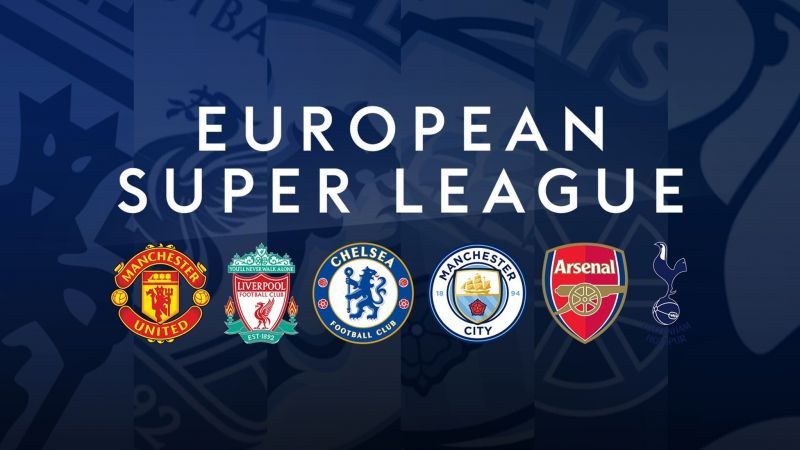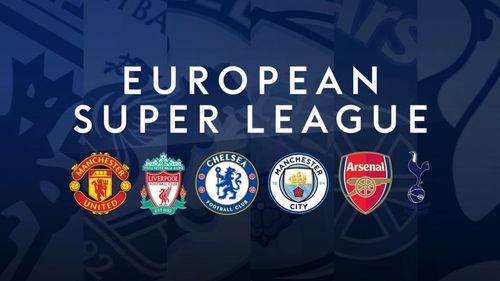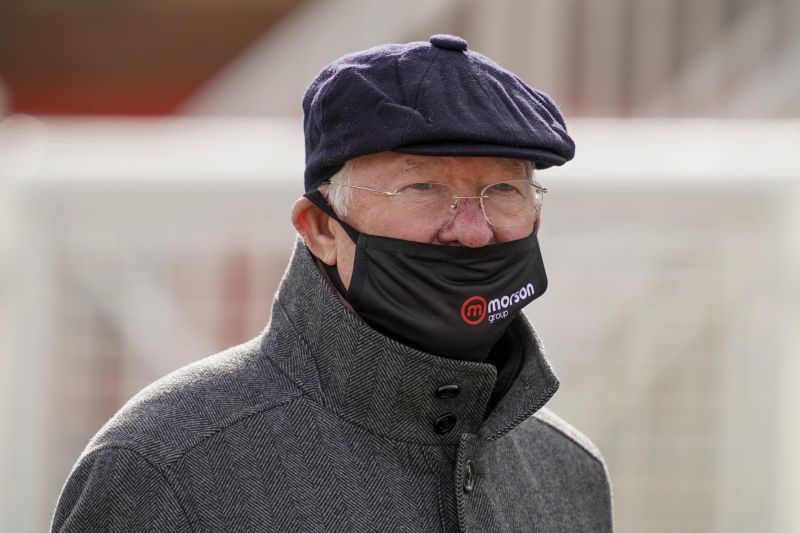
European Super League: Why the death of football was coming for a long time

18th April 2021 was apocalyptic for many football fans across the world. Despite the persistence of an overwhelming opposition from all corners to a breakaway elite league, 12 of the biggest clubs in the world officially announced on the fateful Sunday that they would form a European Super League featuring the who's who of the game.
This move promises to shake the foundations of the sport as we know it. As is often said, football is a sport founded by the poor and snatched by the rich, and one can argue that this move by the clubs who really matter is the culmination of that process of usurpation.
The statement released on behalf of the European Super League said that the twelve clubs, which include the proverbial big six of the English game (Arsenal, Chelsea, Liverpool, Manchester City, Manchester United and Tottenham Hotspur), along with the three behemoths of the game in Spain (Atletico de Madrid, Barcelona and Real Madrid) and Italy (AC Milan, Internazionale Milano and Juventus FC) would be part of the proposed 20-team midweek competition as founding members. Three more 'founders' are set to be identified, and the league will begin 'as soon as practicable'.
So what's in store? Well, for one, these so-called founding members will always be a part of the league, with only the five other spots up for qualification for the have-nots of the European game. That means the goliaths will always be there, ever-present and running the show, in effect successfully creating an elite society of football teams raking in much of all the moolah the game has to offer.
The move also threatens to supplant the current premier European club competition, the UEFA Champions League, which is in expansion mode from 32 to 36 teams and a change of format - moves made to appease the same big boys.
Clearly, that proposed change wasn't enough for these football clubs who became mega-corporations once the game started becoming a cash cow in the late 80s and early 90s.
The game has been unofficially heading in this direction for years now, despite the supposed egalitarian approach of UEFA and FIFA who believe their pyramid structures ensure that teams from the lowest rungs can theoretically rise to the top of the game.
From a kickabout in the mud in the National League in England to the dizzying heights of the Champions League, one can really dream big in this game. But those dreams cannot really reach fruition in the current scheme of things. Already, the clubs in those dizzying heights are out of reach.
Teams such as Manchester City and Real Madrid are run in a completely different way from the others lower down the pyramid. They make the money; they have the money to buy the best in the business, to destroy any semblance of a level playing field, to buy success, even artistry.
That is the unequal model that the sport is run on nowadays, and this proposed move is rubber-stamping the fact that the elites are beyond reach; they do not care about the game or the sentiments attached with the game, its history or heritage.
All they care about is the bottom line, a line on which COVID-19 has wreaked havoc. Reportedly, the American bank, JP Morgan, will be bankrolling billions to fund the league and a revenue model, primarily funded by TV distribution rights, seems to be already in place.
A European Super League would not only kill the dreams of smaller teams, but it might also kill them financially. For fans, the game could become a snoozefest, an exercise in boredom despite the biggest teams being ever present. The success of a competition like the FA Cup relies on the element of surprise, of small teams dreaming big and upsetting the big boys.
It is also a troubling thought that the clubs themselves want to run the show administratively, thereby making UEFA essentially meaningless. That is contrary to the spirit of equality and fairness.
The barrage of condemnation that has been directed at the teams from fans who have vowed to stop following the clubs, the disparaging statements from leading lights of the game such as Sir Alex Ferguson and politicians such as UK Prime Minister Boris Johnson do not seem to matter to these companies/clubs.
Neither do the threats of expulsion issued by the Premier League and UEFA of bans and explusion. These clubs seem to know that they hold the reins of the game, and everything else will fall into place in time.
Football being run by people who do not care about the game?

It is interesting to note that all three of Manchester United, Arsenal and Liverpool are run by American businessmen or corporations.
The likes of Stan Kroenke and Malcolm Glazer (owners of Arsenal and Manchester United, respectively) have become increasingly unpopular with their legions of fans. City are owned by Sheikh Mansour, an Emirati businessman who has transformed the club but is often berated for bringing a culture of money to the team.
It is suggested that these new owners do not know nor care about the culture of the European game and are in it for the huge money on offer. For them, the proposed Super League is a godsent.
Football has continued to function with empty stadiums during this global pandemic. That has diminished the importance of traditional fans while paradoxically hastening the formation of such a breakaway closed league where the big boys will, in theory, eternally mint the money.
It's worth recalling the formation of the Premier League, which was backed by the then biggies. Then a breakaway league, it has now become the top league in England as well as the world. Hence, one might not be surprised if the European Super League actually becomes a reality, and football is disrupted again.
It was always in the pipeline.